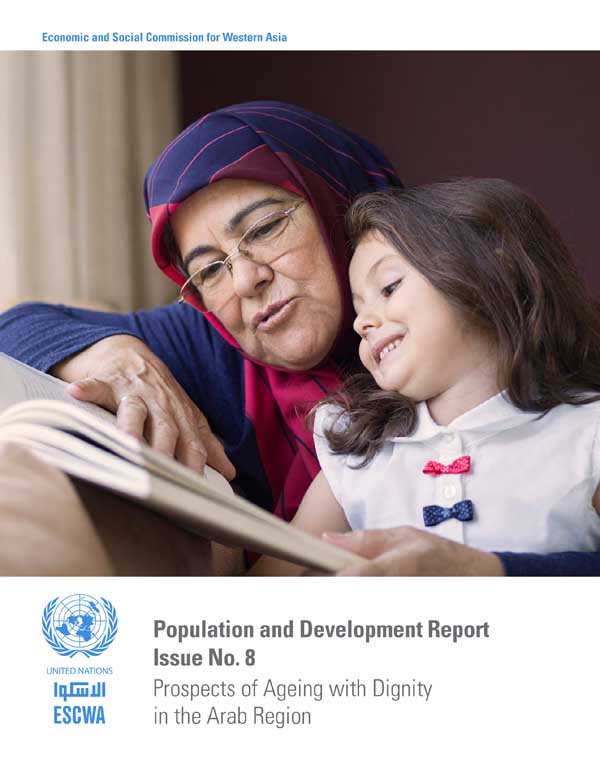Underdeveloped care ecosystems continue to leave large groups of older persons vulnerable. Care ecosystems for older persons are composed of a social protection system, including social insurance, social assistance and health coverage, and the care economy comprised of services provided to older persons by the public and private sectors. The care ecosystem in the Arab region urgently needs to be developed and is receiving increased attention from Arab governments, particularly given the heightened vulnerability of older persons during the COVID-19 pandemic. Countries working towards the Sustainable Development Goals and the promise to leave no one behind need to take into consideration the rights and needs of older persons in their development programmes.
The ninth issue of the population and development report (PDR9) focuses on how to build forward better for older persons in the Arab region. The report is guided by the 2030 Agenda for sustainable development and the Madrid International Plan of Action on Ageing. It adopts a human rights-based approach and applies a gender and disability-sensitive analytical lens, providing disaggregated data where possible.
The meeting brings together representatives from member States and leading experts in ageing and social protection to peer review the draft PDR9.
